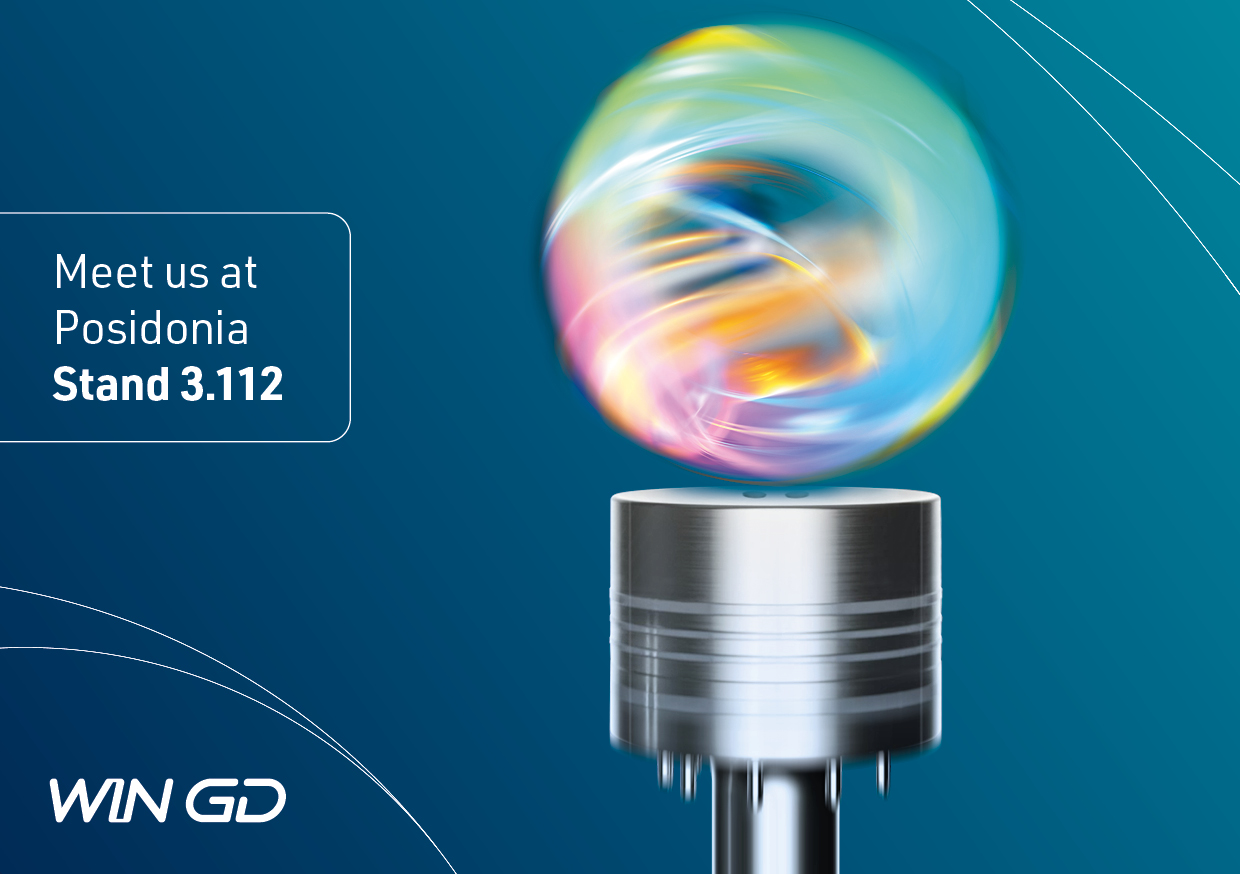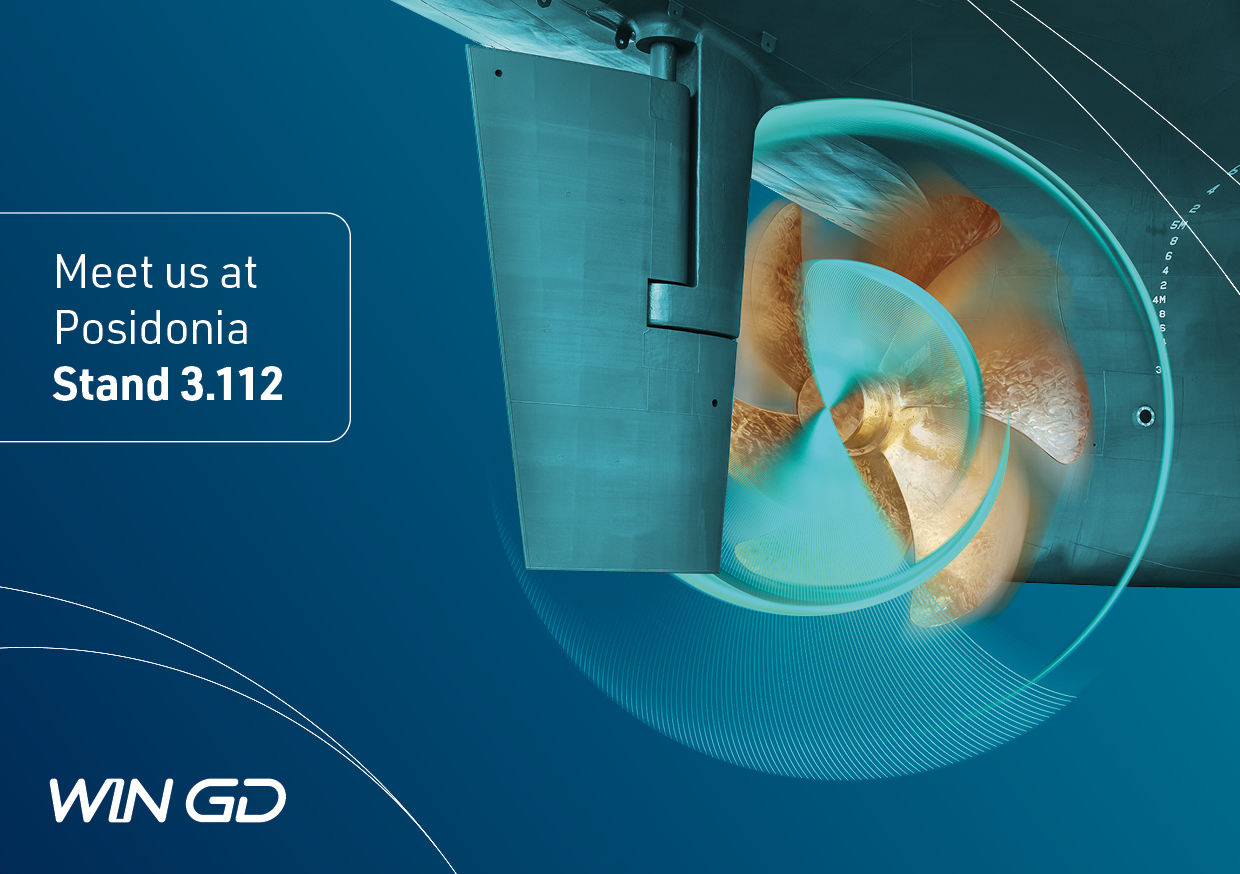
As shipping looks to new fuels and power sources to reduce emissions, ship power will no doubt look very different in the years ahead. But for most vessels, one thing will remain constant; the engine will be the heart of the power system.
WinGD believes that a holistic approach to maximising energy efficiency across the fleet begins with the engine. A pathway to decarbonisation for deep-sea going vessels must include engines capable of using low- or zero-carbon fuels, supported by hybrid power sources and digital optimisation of engine management. Across all these areas, WinGD is ready to help ship operators take their next steps.
As a leader in dual-fuel engine development, our X-DF engine portfolio already enables operators to use both conventional LNG and, as they become more widely available, carbon-neutral synthetic and bio-LNG. Our commitment to deliver engine technologies enabling the use of ammonia and methanol by 2025 - across both dual-fuel and Diesel engine ranges - means that ship owners and operators can already invest in ships that will be able to use carbon-neutral and zero-carbon fuels.

Future fuels, ready!
When it comes to ammonia, the first order for ammonia-ready vessels with our dual-fuel, low-pressure X92DF-2.0 engines was received from ship owner PIL. This order reflects our capabilities in offering customers zero-carbon or carbon-neutral fuel solutions. The delivery of these vessels, with the first due in August 2024, is in line with WinGD's broader ambition to grow sales of multi-fuel engines capable of operating on carbon-neutral fuels to 50% of the company's order book by 2030. This is in line with the industry's predictions as to when these fuels will be available at scale.
Until cleaner fuels are widely available, engines need to use current fuels as efficiently as possible. High efficiency and low fuel consumption means that emissions from WinGD engines can already be optimized to meet IMO's incoming CII and EEXI regulations. LNG provides the cleanest and most widely available alternative fuel, and WinGD offers the market-leading technology for the efficient use of gas fuel.
Since its launch in 2013, our X-DF engine series has become the world's best-selling low-pressure two-stroke dual-fuel engine, with over one and a half million running hours to-date. Building on the proven maturity of the original X-DF engine series, the second-generation X-DF2.0 platform was launched in 2020, with the ambitious GHG reduction targets in mind.
The X-DF2.0 platform has been enhanced to deliver ground-breaking efficiencies. Intelligent Control by Exhaust Recycling (iCER) was introduced to the X-DF2.0 platform to reduce fuel consumption and cut methane emissions. iCER further reduces methane slip by 50% compared to the already record low level of the first-generation X-DF and lowers fuel consumption in both diesel and gas mode. The technology also enables Tier III NOx compliance in liquid fuel mode without the need for additional Selective Catalytic Reduction (SCR) NOx reduction technology.
In early 2022, tests confirmed that the performance of the X-DF2.0 engine technology had surpassed initial expectations in terms of fuel savings achieved. Optimized engine settings on the X-DF2.0 platform have achieved fuel savings of up to 8% in gas mode and up to 6% in diesel mode during recent tests at CMD (CSSC-MES Diesel Co) in Shanghai, China.
WinGD's investment in future fuels research means that it can state that X-DF engines in the market today are retrofittable for future fuels. But the benefits of future fuels are not limited to the X-DF range. WinGD's X-engines are powered by liquid fuels, of which there are several emerging carbon-neutral or zero-carbon candidates, including bio-diesel and alcohol fuels. WinGD has invested extensively in preparing to use these fuels, including leading European research into injection concepts.

Hybrid and digital
The future will not be about fuel alone. Hybridization of the power arrangement is one option that will save ship operators energy and make the use of future fuels more efficient and cost-effective. WinGD offers system integration services that maximize fuel efficiency by selecting and sizing hybrid components and the electrical system in parallel with the main engine.
In August 2021 WinGD won a contract to integrate hybrid energy systems on four newbuild car carriers for Japanese owner NYK Line. The four pure car and truck carriers (PCTC) will run on LNG, with WinGD's 7X62DF-2.1 two-stroke engines coupled with shaft generators, DC-links and battery systems.
WinGD is responsible for system integration and system-level energy management through its Hybrid Control System. Combined with other ship design enhancements, the LNG-battery configuration is expected to cut overall CO2 equivalent emissions by around 40% compared to conventionally powered vessels operating on heavy fuel oil, taking them beyond IMO's 2030 target.
Digital optimization also has a key role to play in decarbonisation. WinGD's Integrated Digital Expert (WiDE) system is a comprehensive remote performance monitoring system that uses machine learning and digital twin technologies to support crew on vessels and on shore - delivering business-enhancing, actionable insights from engine and ship data.
Being future fuel ready starts with the engine. But it doesn't end there. Through progressive investments in its core engine concepts, as well as hybridization and digital optimisation, WinGD's holistic portfolio of energy efficiency solutions sits at the forefront of shipping's energy transition.
We are future fuel ready. Are you?
The opinions expressed herein are the author's and not necessarily those of The Xinde Marine News.
Please Contact Us at:
media@xindemarine.com




 Ningbo Containerized Freight Index Weekly Commentar
Ningbo Containerized Freight Index Weekly Commentar  Ningbo Containerized Freight Index Weekly Commentar
Ningbo Containerized Freight Index Weekly Commentar  Ningbo Containerized Freight Index Weekly Commentar
Ningbo Containerized Freight Index Weekly Commentar  BIMCO Shipping Number of the Week: Bulker newbuildi
BIMCO Shipping Number of the Week: Bulker newbuildi  Ningbo Containerized Freight Index Weekly Commentar
Ningbo Containerized Freight Index Weekly Commentar  Ningbo Containerized Freight Index Weekly Commentar
Ningbo Containerized Freight Index Weekly Commentar